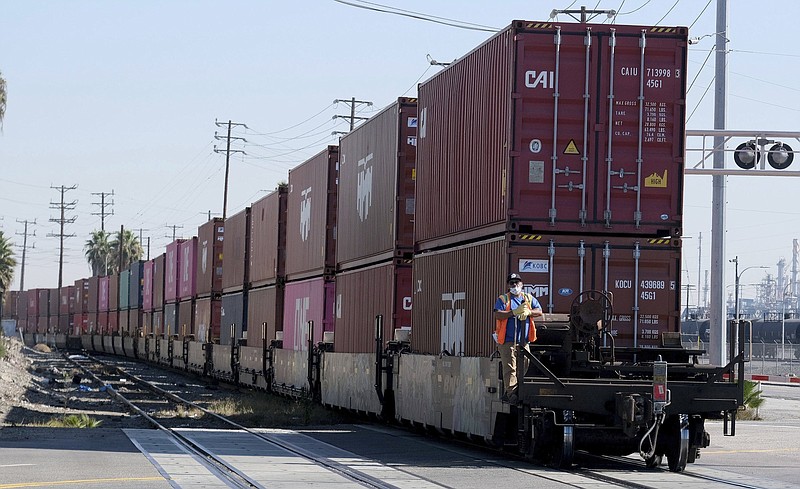The pandemic-related shortages that are pushing consumer prices higher are poised to last longer than economists and policymakers had expected, partly because of gridlock in the global supply chain, Federal Reserve Chairman Jerome Powell said, adding that officials still expect the rate of inflation to moderate, but the central bank needs to be in a position to react if it does not.
"Overall inflation is running well above target," Powell said at a virtual Bank for International Settlements-South African Reserve Bank conference Friday. The Fed's view is that those pressures are likely to abate as people shift spending back to services, but supply constraints are "likely to last longer than previously expected, likely well into next year," and the same is true for pressure on wages, he said.
It is the "most likely case" that as they resolve, and as job gains move up, inflation will move back down toward the Fed's 2% goal, he said. The measure of inflation that the Fed targets has shown prices increasing at 4% or more in recent months, compared with the previous year.
"In the meantime, the risk is that high inflation will begin to lead price and wage setters to expect unduly high rates" of inflation in the future, Powell said. If inflation was at risk of staying persistently high, "we would certainly use our tools to preserve price stability, while also taking into account our maximum employment goal."
He said the Fed's policy needed to be positioned for a range of plausible outcomes and ready to adapt as needed, and noted that the Fed was "on track" to begin a slowdown of its large-scale bond-buying purchases, a process that is expected to be completed by the middle of next year.
The Fed has been buying $120 billion in assets per month and is prepared to slow those purchases as soon as next month. It is also holding its main interest rate at near zero, a policy that helps to keep many types of borrowing cheap and stokes demand in the economy.
By tapering off and eventually stopping its bond purchases, the Fed is putting itself in a position where it could raise interest rates to slacken demand and lean against inflation next year, if doing so proves to be necessary.
Asked if he was certain that the Fed was not behind the curve in its response to inflation, Powell said he thinks the global supply chain will get back to normal over time.
"We're in the risk-management business, not one of absolute certainty," he said. "I would say our policy is well positioned to manage a range of plausible outcomes, I do think it's time to taper, and I don't think it's time to raise rates."
